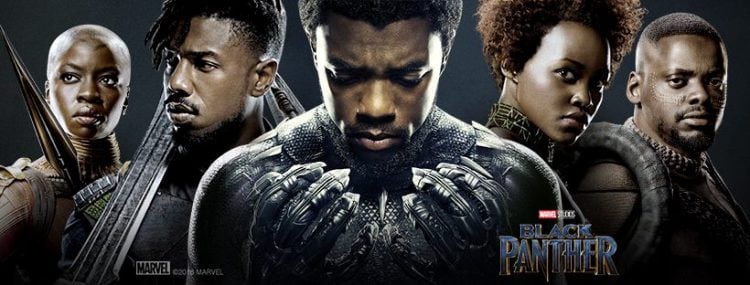
Since the release of ‘Black Panther’ earlier this year, you’d be hard pressed to find an aspect of the film that didn’t garner praise. Whether it’s the depth with which its villain is rendered or the historical influences on the costumes and makeup seen throughout Wakanda, countless creative choices added up to make the movie arguably Marvel’s most unexpectedly successful effort since the original ‘Guardians of the Galaxy’. But while the film’s critical and commercial success makes all of these choices seem both obvious and easy in hindsight, they could easily have gone in a very different direction. Speaking to THR, star Chadwick Boseman singled out one creative choice in particular that he had to fight for, one that could have changed the entire feel of the film if the studio had gotten its way.
“They felt that it was maybe too much for an audience to take. I felt the exact opposite – like, if I speak with a British accent, what’s gonna happen when I go home? It felt to me like a deal-breaker. I was like “No, this is such an important factor that if we lose this right now, what else are we gonna throw away for the sake of making people feel comfortable?”
The Wakandan accent depicted in ‘Black Panther’ is a deceptively small detail. The thing is, It’s not just a matter of the accent itself – which was based on a number of African accents, primarily Xhosa. While at first it might seem like one of a plethora of elements that contribute to the verisimilitude of Wakanda or enhance what you might call the film’s “African bona fides,” it’s just not that simple. Why? Well, think about the parts of Africa where you might expect to hear something similar to a British accent, like for example South Africa. Where did that accent come from? Centuries of British colonial influence on the local culture and language. Not if you recall, Wakanda’s backstory includes the fact that the country was spared the conquest and colonization that was inflicted on the rest of the continent. It’s a major part of the mythos, not only of Wakanda but of the Black Panther. So why, then, would the Wakandans speak with British accents?
Moreover, the stated rationale that using actual African (or African-inspired) accents would be “too much for an audience to take” can’t help but call to mind some of the more stubborn pieces of conventional wisdom in Hollywood. I’m referring, of course, to the idea that movies fronted by (or marketed to) anyone other than white men will fail to put butts in seats. It’s an idea that’s as stubborn as it is infuriating, and appropriately enough, ‘Black Panther’ would become one of a number of recent movies that put the lie to that very notion. At worst, the proposed use of British accents is rooted in (intentionally or not) in the film industry’s own brand of institutional racism; at best it was a case of massively underestimating the audience.
In either case, we can all be thankful that sanity prevailed.
While British accents would not, in and of themselves doomed ‘Black Panther’, it would have undermined the film on a subtle but undeniable level. After all, just as a thousand small decisions can give rise to an unforgettable cinematic experience, a handful of tone deaf or overly cautious choices can undermine what could have been a classic. Thankfully, ‘Black Panther’ ended up falling into the former category.
‘Black Panther’ is available on blu-ray, DVD, and through a variety of digital storefronts.
Be sure to check back with ScienceFiction.com for more on this and other installments in the Marvel Cinematic Universe as it becomes available.
